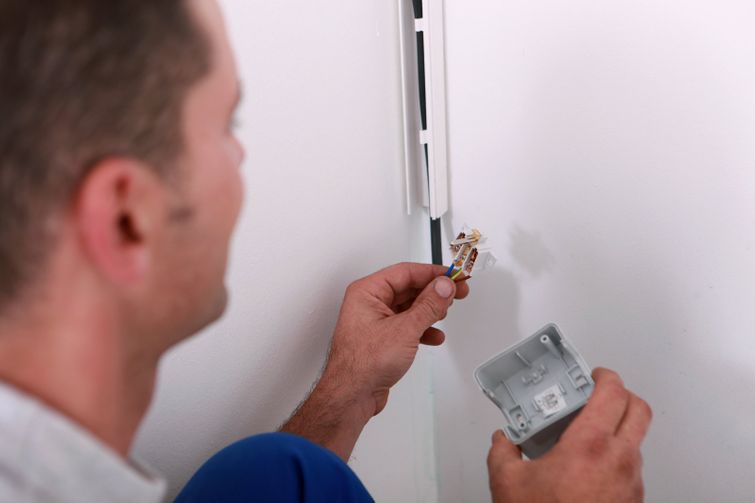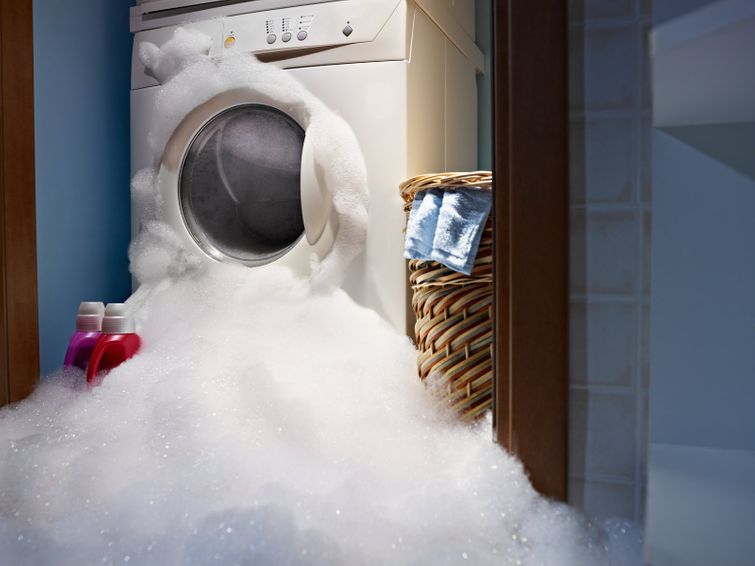Every person wants to buy their dream home, but the current real estate market is amping up the pressure. There is a shortage of homes and a large pool of potential buyers, thus ramping up the competition and prices.
In order to keep up with the red hot market, many buyers are opting to skip home inspections to sweeten the deal and sway sellers to choose their offer over another. In fact, according to real estate brokerage Redfin, more than 13% of buyers have waived the inspection contingency. More people are offering to waive the home inspection because they know the seller can benefit; it speeds up the closing process and is not invasive.
While skipping the inspection does allow the buyer to increase their chances of having their offer accepted, it does have its downsides; waiving the inspection contingency waives the buyer's ability to request repairs or cancel the sale if issues are discovered.
Before you and your real estate agent decide to skip the inspection, read more about it below. You may come to realize the benefits of having a property assessed before you close.

A home inspection is a professional assessment of a home's current condition done by a trained home inspector. The inspector assesses the inner workings of a house, including its plumbing, electrical, and heating and cooling systems, to provide the buyer with an in-depth report on the state of the house. Home inspectors can also provide an estimate for repairs,
A home inspection is an incredibly useful assessment when it comes to buying a new home. We will explain why you should never skip a home inspection below to help you learn why it is so important.
When you skip a home inspection, you do not know about your new home's major problems. Therefore, you lose your power to negotiate; you can't negotiate with the seller to either have them lower the home price or fix any issues before the sale is finalized. You have to purchase the house as-is.
That means you will have to pay the repair costs if you encounter major issues in the near future. This can be incredibly expensive depending on the repairs and your budget. If you have just spent a lot of money on your down payment, you may not have enough to cost the cost of repairs. Then you could be left living in an unsafe house or in debt.
Your home is supposed to be a safe place. But, without a home inspection, you may never know if any health and safety concerns threaten your family and their wellbeing.
An inspection can identify a wide range of safety issues, including but not limited to:

A home inspection can reveal whether the seller altered or added rooms, garages, or decks to their property without the proper building permits. An inspection can also determine whether additions or installations do not comply with the Ontario Building Code.
If a buyer were to purchase and take over a mortgage for a property with illegal additions or structures, they may have difficulties obtaining insurance. Or, the new owners will have to begin the time-consuming and expensive task of obtaining permits.
A thorough inspection is critical because painting, surface-level fixes, and staged open houses can make any house look as if it is in great health. In reality, there could be many deal-breakers just below the surface.
A home inspector will look for more than just cracked walls; a home inspection means a thorough assessment of the home, including all of its systems below the surface. You will be aware of how your home is beyond surface-level appearance.
After an inspection, you will receive a home inspection report. This report will detail any future repairs that will need to be done to the property. If you do not make a deal with the seller to have them fix it, you can estimate the costs of repairs.
In most cases, the home inspector will offer an estimate. They can also explain the type of work that will need to be done, allowing you to gauge whether you are willing to do the work for the house.
Did you know that some home insurance companies may not insure a home if a home inspection is not completed? An insurance company wants to ensure that their investment in your home is not risky and not knowing its pre-existing issues is a risk to their investment.

Additionally, not having insurance will leave you at risk of having to pay for damage, theft, or any other home issues that arise. This could be very expensive in the long run.
When you waive a home inspection, you sacrifice your peace of mind for your new home. You may stay up all night wondering about the potential problems that your house may have. You may even wonder whether it was right to purchase your home without knowing what issues it has.
Maintaining the inspection contingency can reduce your stress levels and provide you peace of mind.
Thanks to a home inspection, you can sleep well at night knowing that you know everything about your home's condition. There are no unpleasant surprises; you know all of the nitty-gritty details about your home's current condition for better or worse.